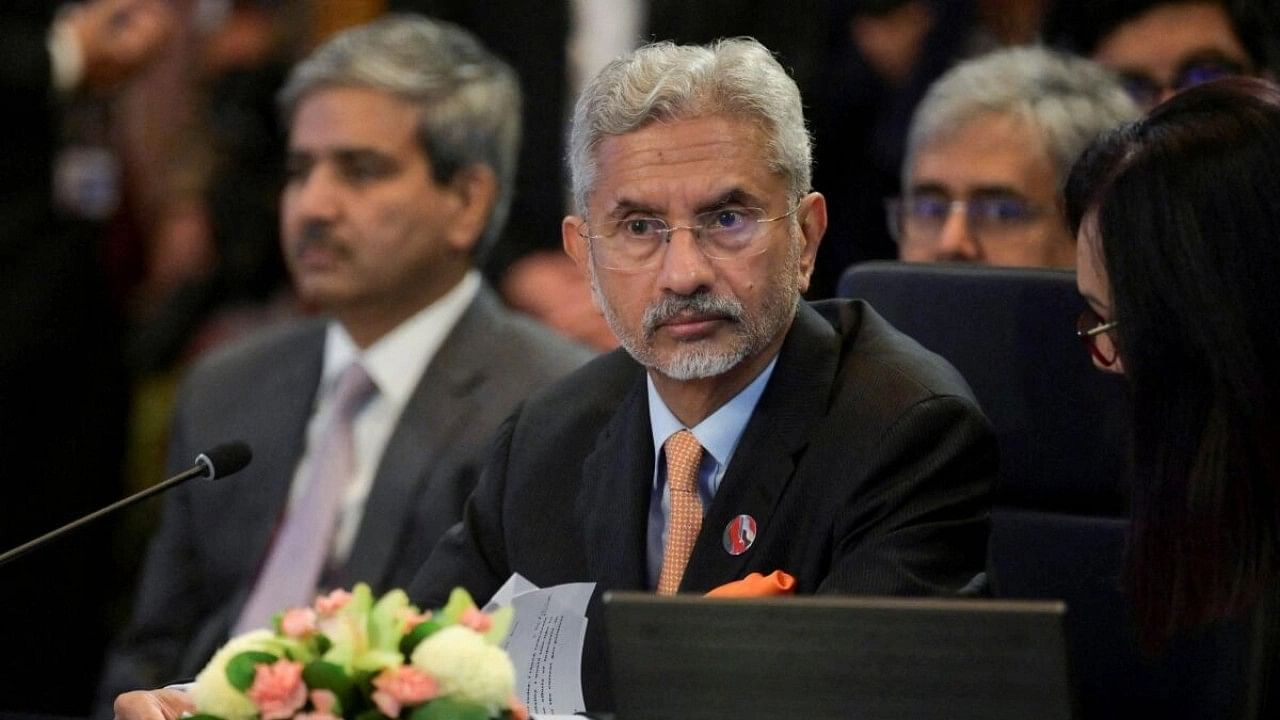
Dr. S Jaishankar, Union Minister of External Affairs.
Credit: Reuters Photo
External Affairs Minister S Jaishankar's Munich epiphany on civilian casualties in Gaza is a welcome development. At a discussion at the Munich Security Conference, Jaishankar said the Hamas attack was “terrorism...no caveats”, and that the return of the hostages was “imperative”. He also said that “…Israel should have been very mindful of civilian casualties, it has an international obligation to observe humanitarian law”.
The only regret is that India did not say this earlier. Indeed, before this, India had dodged several opportunities to take an explicit stand against the horrific human toll that Israel has extracted in Gaza as it used its right to “self-defence” -- the latest numbers are 29,000 killed, two-thirds of them women and children. So, Jaishankar's sudden acknowledgement that Israel had disregarded civilian casualties is a significant shift in how India has so far positioned itself on the Israel-Hamas war.
In November, India abstained from a UN General Assembly vote on a resolution calling for an “immediate and sustained humanitarian truce”, on the ground that it did not call out the terrorism by Hamas, but the resolution was adopted by an overwhelming majority of the member-states. Coming soon after its G-20 self-branding as the “Voice of the Global South”, India's backing out of an opportunity to be seen and heard on the side of the civilians in Gaza was a let-down.
It was perhaps due to the impression gaining ground that India was tone deaf to how strongly the world felt about the retribution Israel was unleashing on Palestinians living in Gaza that Modi said in his address to the Voice of Global South Summit last November that “we strongly condemn the deaths of civilians in the conflict between Israel and Hamas”.
Jaishankar's formulation is an improvement. Is it the scale of the casualties in Gaza that has brought about the change of heart? Going by the increasingly transactional nature of India's foreign policy, the explanation may lie elsewhere.
There is a visible shift in Washington’s policy on the Israel-Hamas war and reports of the US imminently moving a draft resolution in the UN Security Council calling for “support for a temporary ceasefire in Gaza as soon as practicable.” India's concern for civilian casualties came virtually in tandem, indeed as Jaishankar was sitting alongside US Secretary of State Anthony Blinken. Also, just last week, days before Jaishankar spoke, India managed to have eight former navy officers released from prison in Qatar, a small but powerful sheikhdom that plays host to Hamas, is negotiating with them for the release of the Israeli hostages, and has condemned Israel strongly for its bombardment of civilians in Gaza. It is tempting to join the dots.